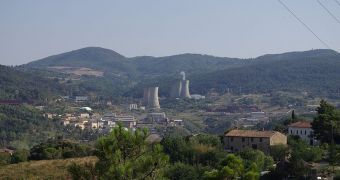Nowdays,when the global population reached 7 billions and its energy demand is increasing, scientists try to develop efficient alternatives to replace traditional sources of power.
While MIT Energy Initiative is preparing to celebrate its 5th anniversary, its researchers are presently trying to find out if zero-carbon energy alternatives are really a viable option.
Most of the breakthroughs seem to be cost-inefficient, unstable, or incapable of adapting to the present infrastructure.
Nevertheless, scientists are pointing towards biofuels, geothermal energy and nuclear power, declaring that these are the greenest sources of power which humankind can benefit from, at least at this point in time.
While talking about biofuels, one of the most important earth-friendly solution, experts say that this entire concept is controversial.
Scientist can't seem to make up their mind. Some say that the usage of biofuel can determine the reduction of the carbon footprint.
Others affirm the contrary: as long-term options, biofuels are the least indicated alternative if we are concerned about the amount of greenhouse gases that reaches the atmosphere, affecting the air quality.
The most recent study showcased by MIT, led by researcher James Hileman, shows that the biofuel's effect can either be positive or negative, depending on the kind of crops experts use as source and their location.
Also, Hileman thinks the processes of producing and transporting the biofuel have a great influence upon his effects.
In order to make fuel a key factor in replacing standard sources of power, scientists agreed that they have to focus on using engineered microbes which would use agricultural waste to produce biofuel.
Another option taken into consideration is to develop microscopic organisms such as algae which are able to transform sunlight directly into molecules, obtaining green fuel as a result.
In theory, researchers rely on the benefits offered by geothermal energy. The advantages look amazing on paper, since our planet is handling 44 terawatts (trillions of watts) of heat.
This would be more than sufficient to cover up to three times our present needs in terms of energy. This path is experiencing issues when it comes to costs.
“There are thousands of years’ worth of energy available. But you have to drill deeply, which can be expensive using present-day drilling methods,” declared Professor of Physics Washington Taylor. Last, but not least, scientists state the advantages of nuclear power. Its biggest minus represents its ambivalent potential. After ending up in the wrong hands, it could help provide nuclear weapons to terrorists. Also, public opinion manifests its concern regarding the risk of a radioactive contamination.
It seems that scientists from MIT are now able to draw the main conclusion: every alternative, regardless of its nature or list of potential benefits, implies environmental or financial costs. Further research will try to develop effective measures to minimize these handicaps.

 14 DAY TRIAL //
14 DAY TRIAL //